Flower Shows Sow Ideas to Use in Your Own Garden
http://decor-ideas.org 04/30/2015 06:13 Decor Ideas
If you’re looking for inspiration for your garden, annual flower shows are a great source. The Royal Horticultural Society’s famous Chelsea Flower Show, in London, is in May, and there are lots of other great garden shows from which you can gather tips and tricks. You can find suggestions for simple plantings that cost no more than the price of a cutting and bigger features that allow you to make use of your garden during all seasons and times of day. Here are some ideas from show gardens to incorporate into your own garden.
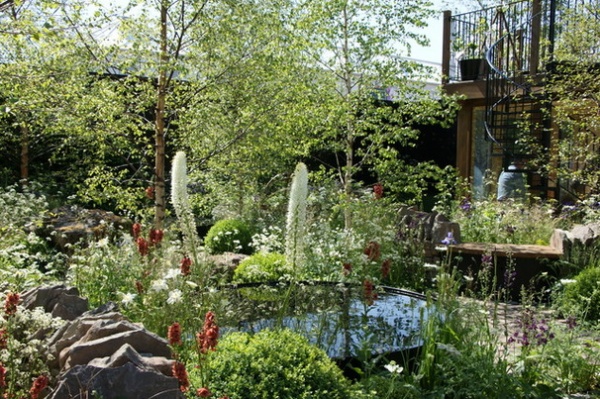
Plant for the year, not the month. One of the downsides of copying a great planting scheme from flower shows is that you’re getting a snapshot of plants that are at their best at that point in the year. This garden was planted in May, so it featured lots of late-spring and early-summer plants, but maybe nothing for July or August.
If you want the show look, visit lots of events throughout the year and see what’s best at different times. That way you’ll know what to plant so your garden looks good whatever the season. Plan through the year and then hit the autumn planting season with your ideas to create a long-lasting display for the following season.
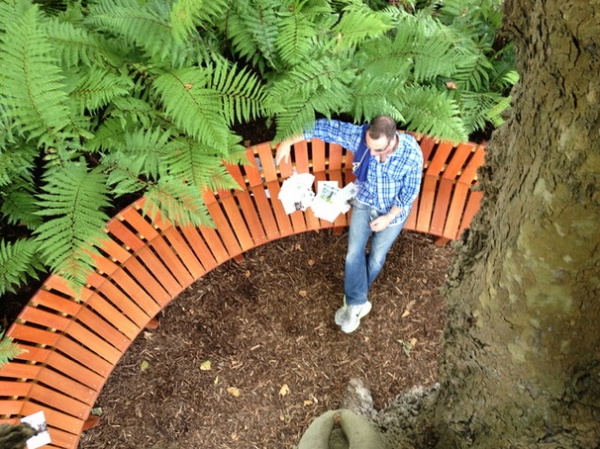
Go for a simple design feature. This 36-seater bench in a conceptual garden in New Zealand would be a great focal point for any garden — and the idea could be scaled to fit your space. It will work especially well if you love giving parties and entertaining large groups of people.
For a lower-key alternative, instead of designing around a tree as in this garden, you might place lots of informal seating made from logs around a fire pit. This should also mean you get more use of the garden into the night and at the cool end of the summer.
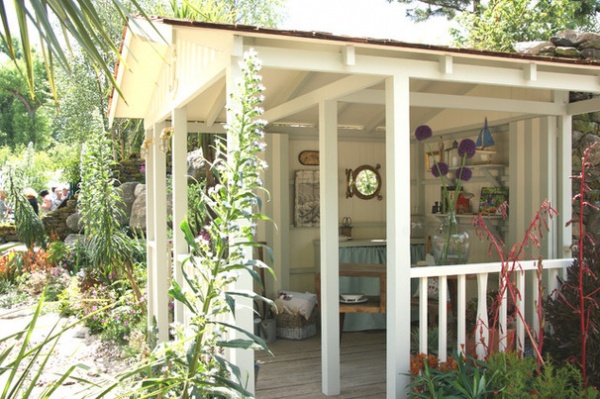
Create a laid-back garden room. Many show gardens feature ultramodern garden offices, but you can also create a simple room made from off-the-shelf units, as in this garden designed by Alan Titchmarsh at the Chelsea Flower Show in 2014.
And of course you can customize it to your own style to create the perfect garden retreat.
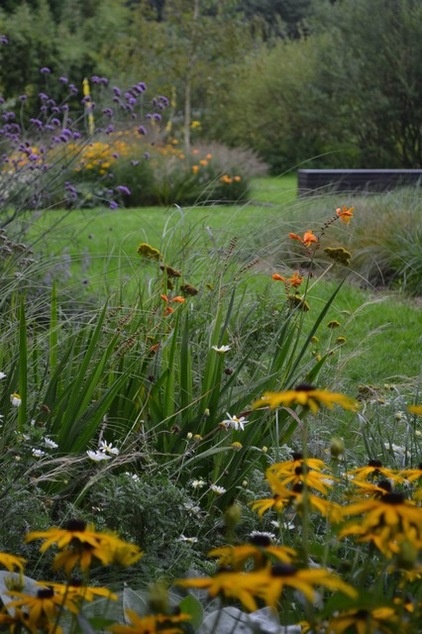
Embrace the wild. Random planting patterns of wilder-looking plants can lead to interesting combinations and plants supporting one another. In this show garden in France, grasses support the flowers of other plants without the need for visible canes.
The look is intentionally wild, which means that with your own garden, you can go on vacation and come back to perfect plantings with no need for maintenance.
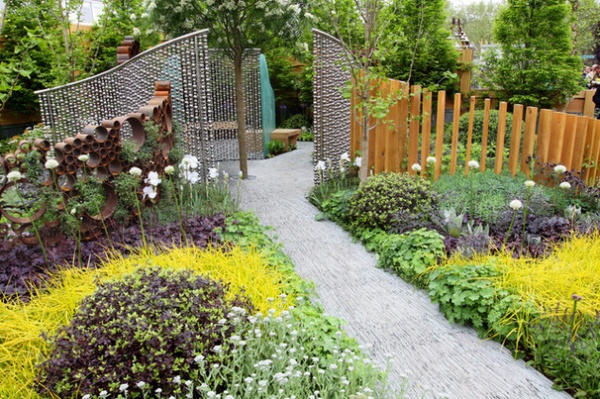
Brave some color. This garden by Darren Hawkes uses strong structural walls as a great foil for lots of foliage in strong colors, especially that zingy acid-green grass. Generally, cool colors will help create a feeling of space in a small garden, while richer, darker reds, pinks and foliage greens will create a sultrier feel.
While hard features, such as paving, boundary walls and buildings, can be too dominant in a garden, soft plants with bold colors allow you to make a statement with style.
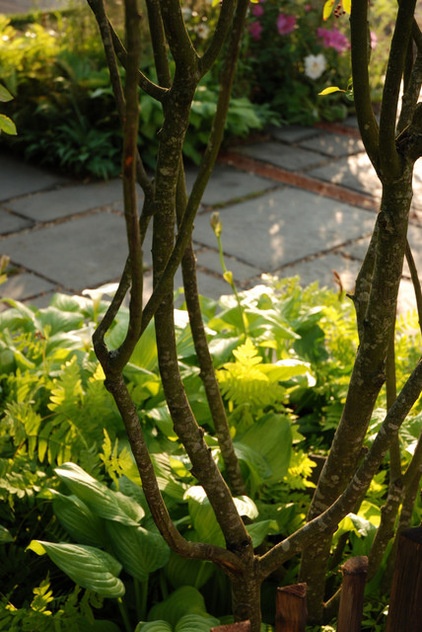
Choose architectural plants. Structural plants are important if you want to provide long-lasting interest, as this show garden at the RHS Hampton Court Palace Flower Show illustrates. Multistemmed trees add structure throughout the year, even when they’ve lost their leaves, and traditional hedges are much softer and cheaper to install than a hard fence or wall.
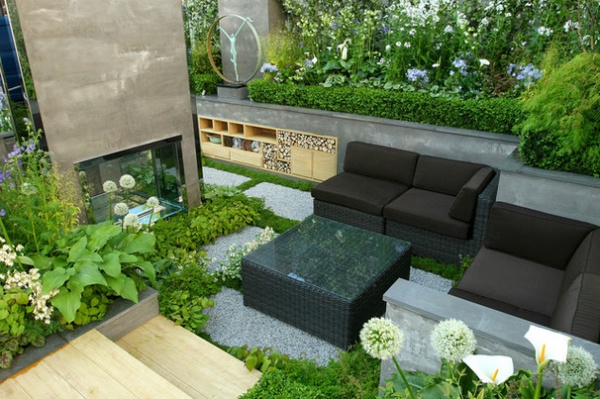
Draw on local expertise. We can’t all be experts in the garden, so if you want to copy a feature, such as these walls, then find a professional landscaper. And for those unusual projects, get a craftsperson in — because, just as with your interior, detail is everything.
If you choose materials indigenous to your area, it will be easier to find local craftspeople with skills relevant to them. And of course, when you buy materials, including plants, locally your garden will seem as if it’s been there for years.
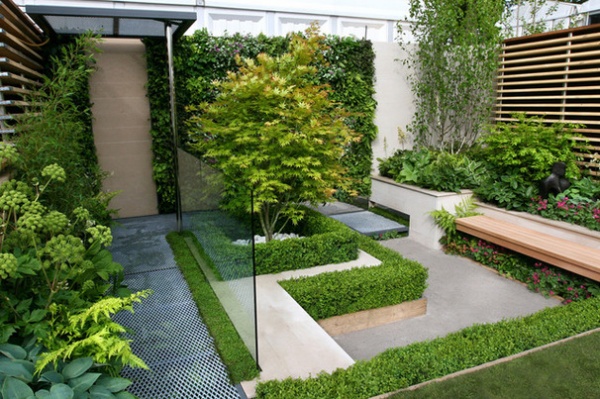
Play with levels. In this garden by Kate Gould at the Chelsea Flower Show in 2011, the main seating area has been placed above ground level, and the walls have been built wide enough to serve as additional seating for guests. A few cushions added to a low wall or even steps can provide informal seating for when you have visitors.
Sloping gardens can be great, because you can use a retaining wall to sit on and be right next to the plants. And of course you have a great starting point for a water feature.
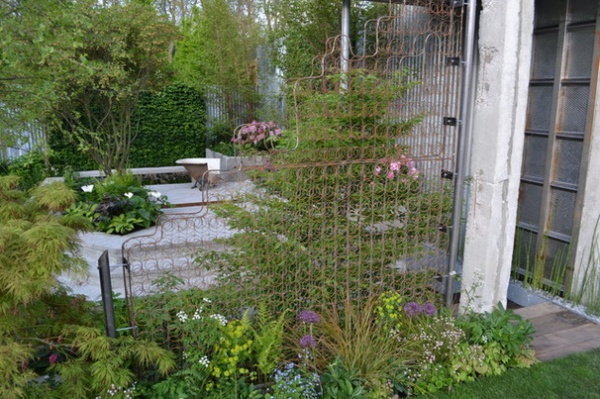
Use found materials. Whether you’re on a budget or have lots to spend, it doesn’t hurt to look around you and see what’s already available. Try to look at materials you’d otherwise throw away and think how you could repurpose them, even if it’s just to create habitats where bees, insects and other wildlife can overwinter.
In this show garden, Gould used corrugated iron panels for an urban feel. Old mattress springs were refurbished to provide an industrial trellis, and a bathtub was cut in half for unique seating.
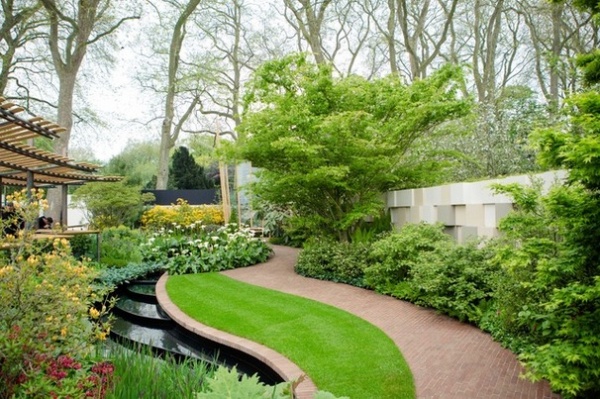
Let your imagination run free. In this garden by Balston Agius, simple wooden blocks were used for a boundary wall. The planting in front is simple, adding to the sculptural feel.
When laying out your own garden, you might also take inspiration from the simple flourish of the lawn here as a great way to provide direction and make a bold statement while also being easy to maintain.
More:
9 Self-Seeders Capture Chelsea Flower Show Magic
See Chelsea Flower Show Ideas Flourishing in a Real Backyard
Related Articles Recommended












